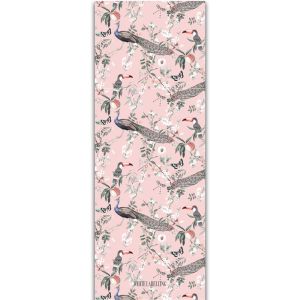Sustainable Stays
Words by: Shamilee Vellu
Whether you think sustainable tourism is a marketing exercise or the future of travel, one thing is for sure – it’s here to stay.
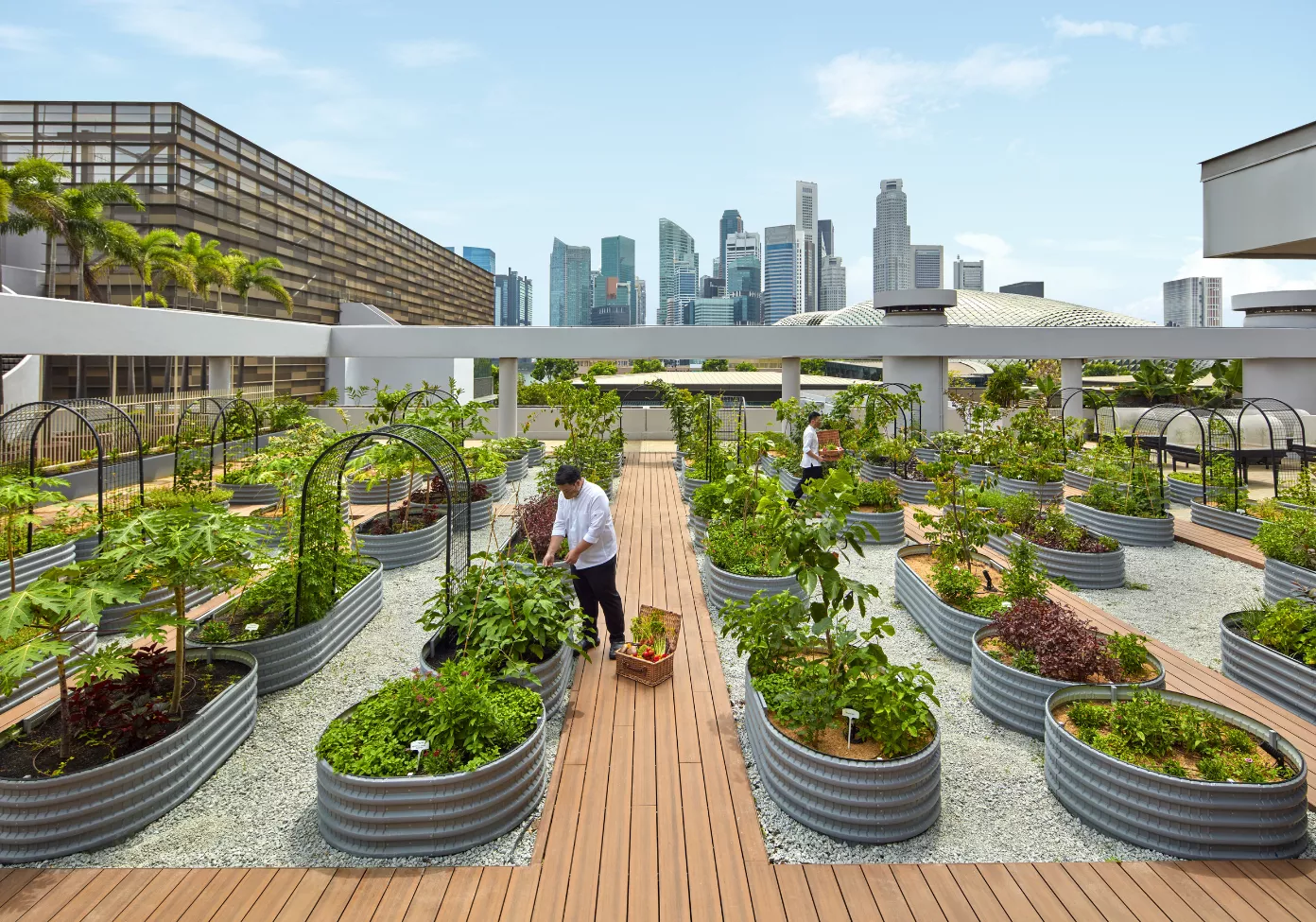
Globally, travelers show a strong desire to experience the world more sustainably. 83% of respondents in a Booking.com survey last year pledged to make sustainable travel a priority in the future, while 70% said they are more likely to choose an accommodation if it has implemented sustainable practices. And faced with the pandemic’s ever-mounting human and societal cost, many of us seek to make a more positive impact on not just the environment, but also local communities and economies when we travel.
In response, industry players both large and small are rethinking (or ramping up) their sustainability initiatives. It's now increasingly common for hotels to undertake "plastic-free" pledges or involve guests in community engagement, such as mangrove restoration or tree-planting. Even tech giant Google announced last September that it would label hotels as "Eco-certified" in search results, so users can find sustainable properties more easily.
“Every day, the call for action against climate change and the need to adopt sustainability grows around the world,” says Melvin Lim, General Manager, Parkroyal Collection Marina Bay, Singapore. “This is increasingly reflected in consumer demand and trends such as Booking.com and Expedia introducing the sustainable badge for green hotels on their booking sites.”
Here, three iconic hotels in the region show how they practice sustainable hospitality that goes far beyond just jettisoning plastic straws.
Singapore’s First “Garden-In-A-Hotel”: Parkroyal Collection Marina Bay
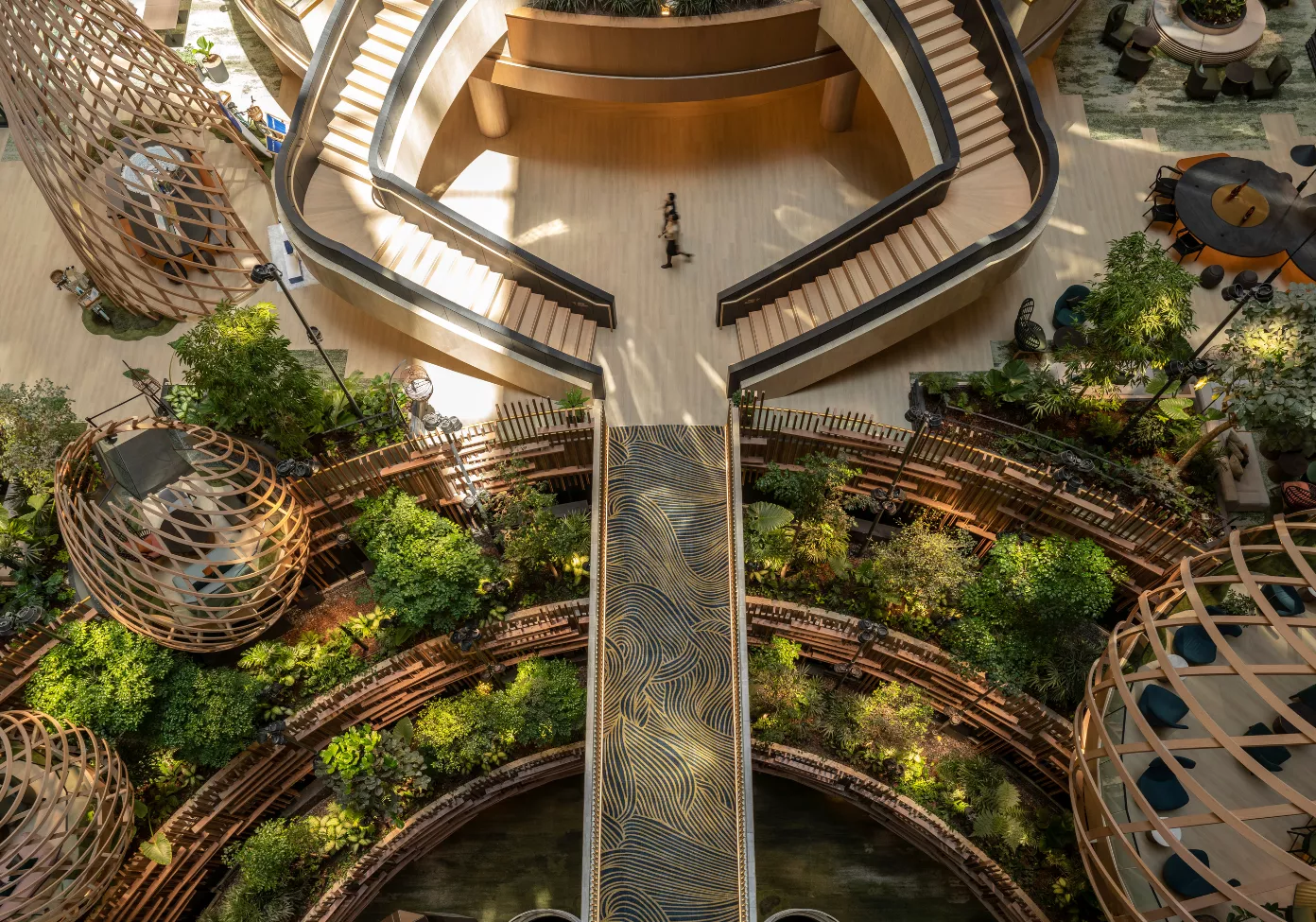
Not for nothing is Parkroyal Collection Marina Bay, which reopened in late 2020 after a S$45 million renovation, hailed as Singapore’s first “garden-in-a-hotel”. The hotel houses a staggering collection of 2,400 plants, trees, and shrubs from over 60 varieties of flora, each handpicked for its resilience and suitability for indoor conditions. These act as natural air purifiers to improve air quality and are in turn lit by energy-efficient grow lights.
On the roof, 210 rooftop solar panels generate over 350kwh of electricity daily (enough to power 540 Singaporean households in one day) and which run the hotel’s 12 lifts and lightings. In-room water filtration systems mean the hotel saves some 360,000 plastic bottles annually, while miniature bath amenities in guest rooms have been replaced with refillable pump bottles – which helped the hotel clinch a silver award in WTM World Responsible Tourism Awards 2021 for its efforts to reduce plastic waste in the environment.
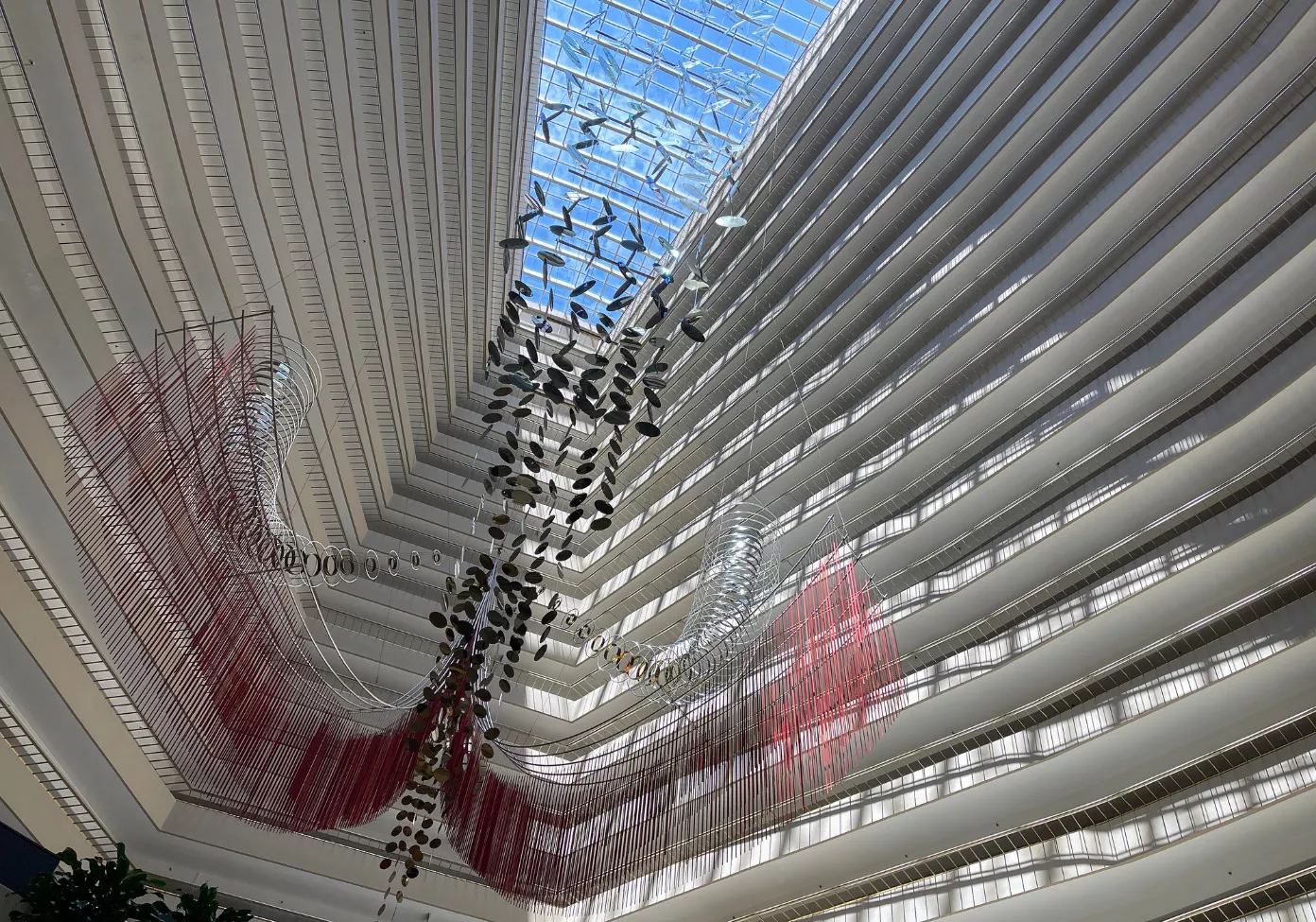
In its F&B outlets, biodegradable packaging is used for straws, containers, cups, water bottles and other peripherals used for takeaways, while in its kitchens, a food waste digester system processes up to one tonne of food waste daily, making it safe for disposal down the waste pipe.
Not Your Average Hotel Kitchen Garden: Conrad Koh Samui
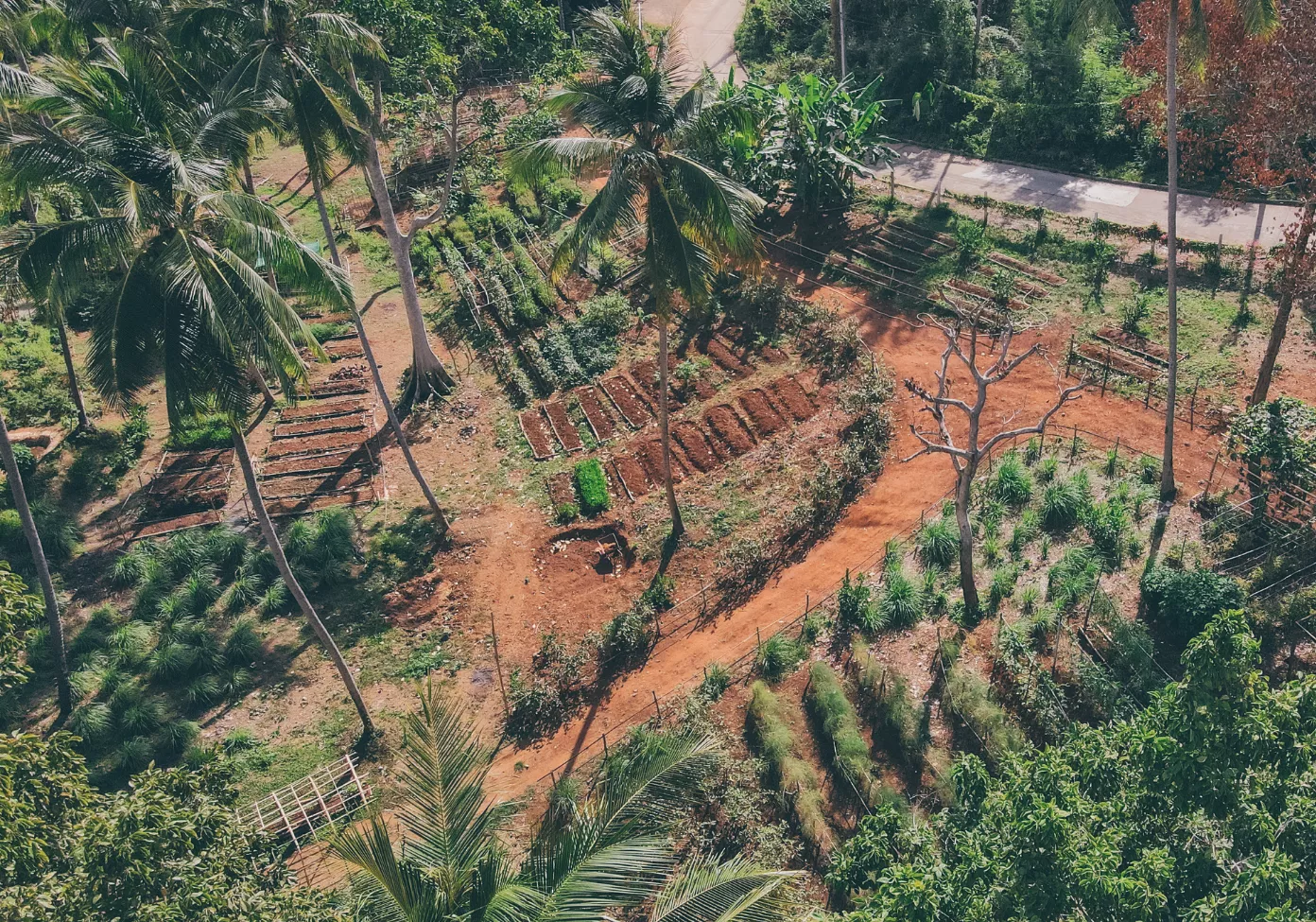
Like many hotels, Conrad Koh Samui had a modestly-sized kitchen garden. But the hotel’s unique location on a secluded tip of Koh Samui, Thailand and the discovery of a large, unused patch of land on the hotel’s grounds showed much more could be done.
Built during the pandemic, Iris Farm covers two acres and produces a constant supply of seasonal fruits, vegetables and herbs. These include three types of bananas, papayas, mulberries, corn, Malabar spinach, five types of eggplants, assorted chillies and much, much more. It even grows cacao and coffee beans, which the hotel uses to make chocolate bars and ice cream.
Iris Farm’s output is almost akin to commercial operations, generating about 1,300 kg of food and 6,000 chicken and duck eggs every month. This is set to double over the next three years as its plants mature.
It mimics natural cycles, regenerating the soil by reusing the hotel’s food waste. All 2,400kg of it is composted, mixed with charcoal and manure from the farm’s animals, then used as nutrient-rich soil in the farm.
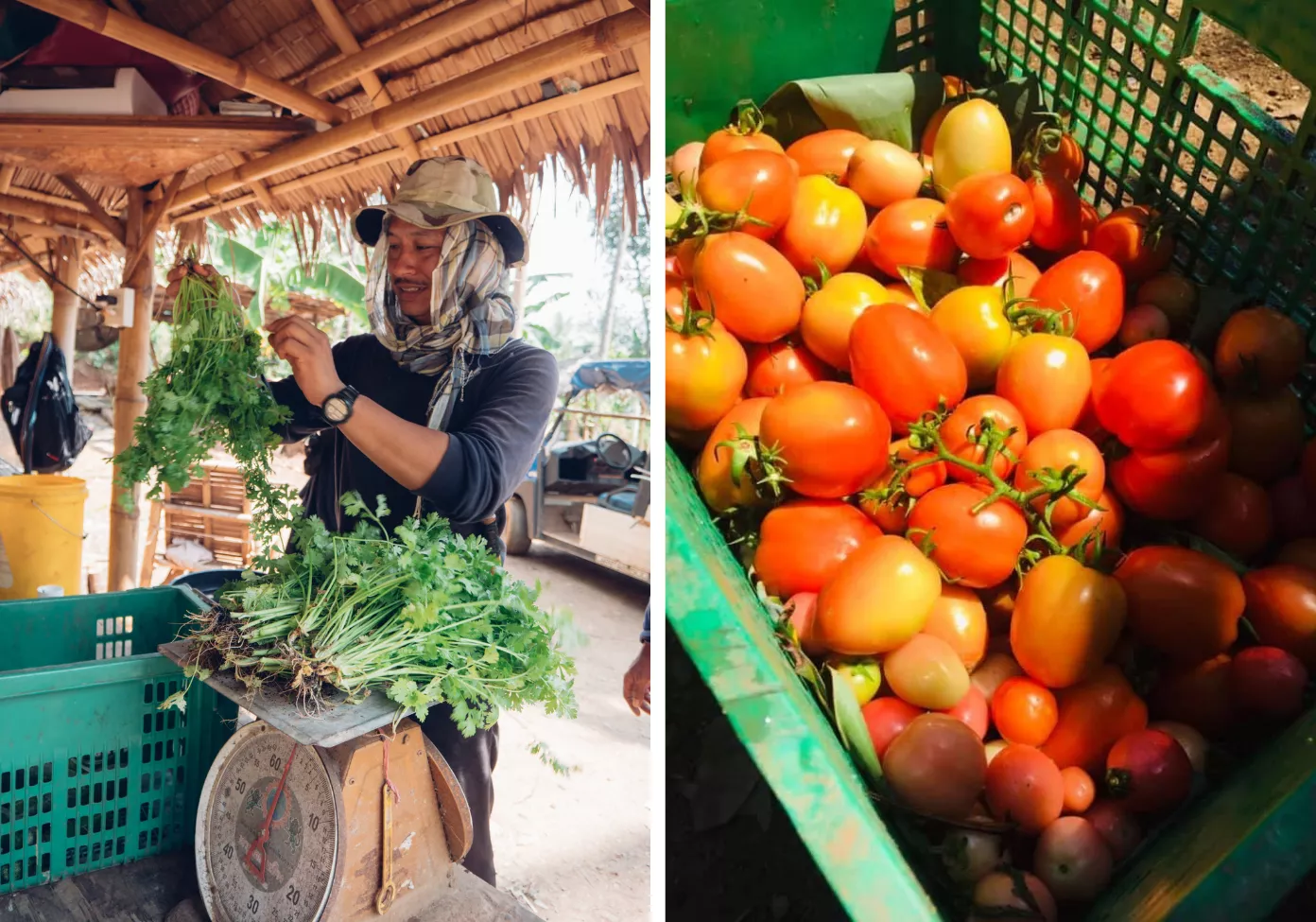
Unwanted equipment from the hotel gets a new life in the farm. Discarded wood from guest villas is used to construct chicken coops, while old pool decks are repurposed as fences and compost bins. Iris Farm welcomes hotel guests, who join daily farm tours, pick eggs for their breakfast, or their favourite vegetables for dinner.
“Across Hilton’s luxury properties, we have implemented initiatives to protect natural resources through a variety of efforts around energy and carbon management, water stewardship, waste reduction and responsible sourcing,” says Nils-Arne Schroeder, Vice President, Luxury & Lifestyle, Hilton, Asia Pacific. “Conrad Koh Samui’s Iris Farm is an excellent example of this.”
Banishing Plastic Waste: The Upper House
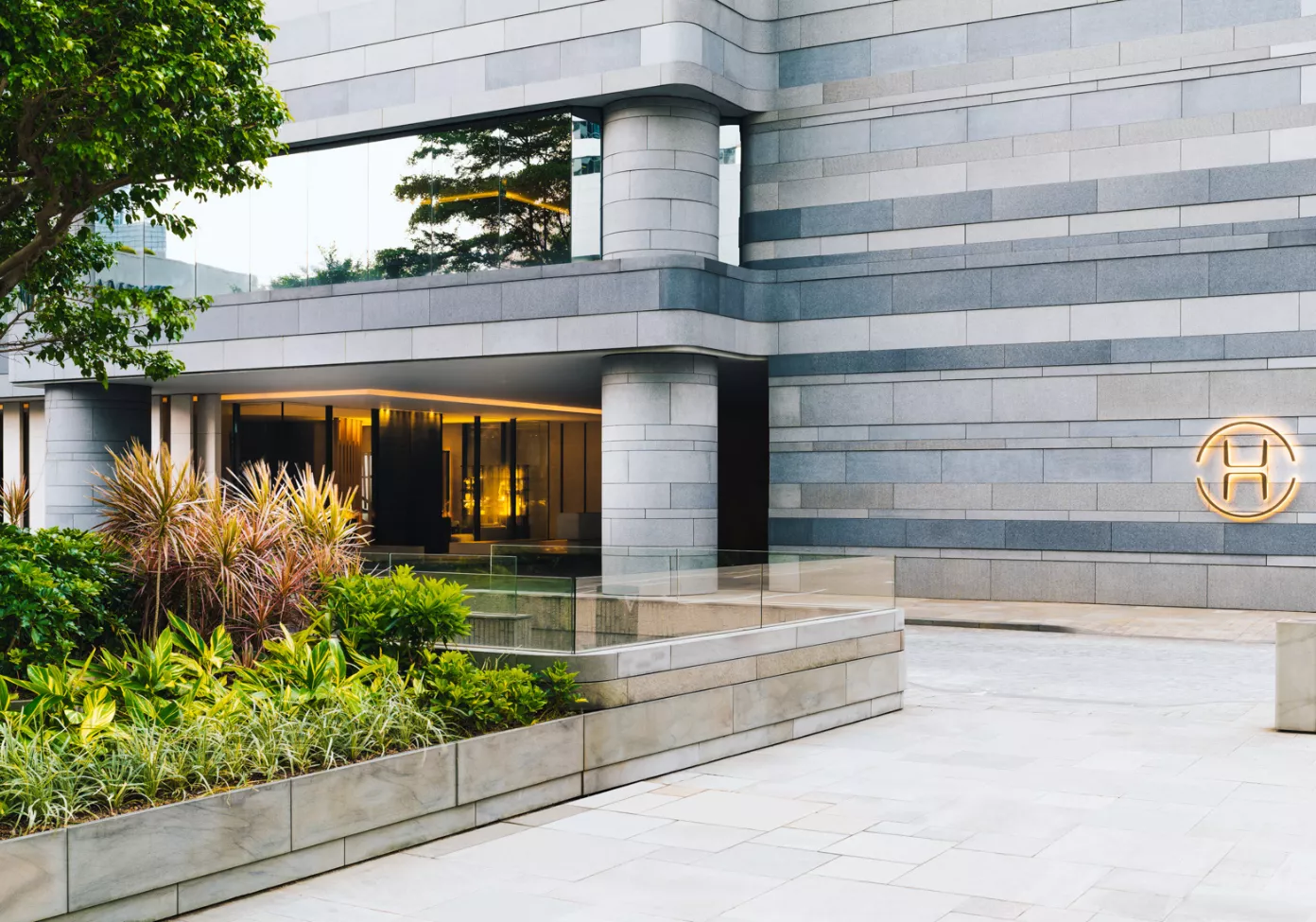
Despite being in business for over three decades, this ultra-sleek hotel in Hong Kong remains at the forefront of luxurious, sustainable hospitality. Its social collaborations, for example, uplift disadvantaged local communities such as the homeless and Hong Kong’s vulnerable young, single mothers.
The Upper House’s eco-friendly initiatives are manifold, yet never compromise on that much-desired “feeling of luxury”. Its in-room Bamford amenities come packaged in aluminum tubes and Hong Kong NGO, Soap Cycling, collects its lightly-used bathroom amenities for redistribution to those in need whilst minimizing landfill waste.
One of The Upper House’s most notable initiatives lies in how it has created environmental and social good from rethinking how it dispenses drinking water.
All of its guest rooms are equipped with a water filtration system which purifies local tap water on-site. This gives guests access to water on demand that’s safe to drink, while reducing the hotel’s carbon footprint. From last September (when the system was introduced) to December, The Upper House saved over 7,000 glass bottles, a reduction of 70% in consumption.
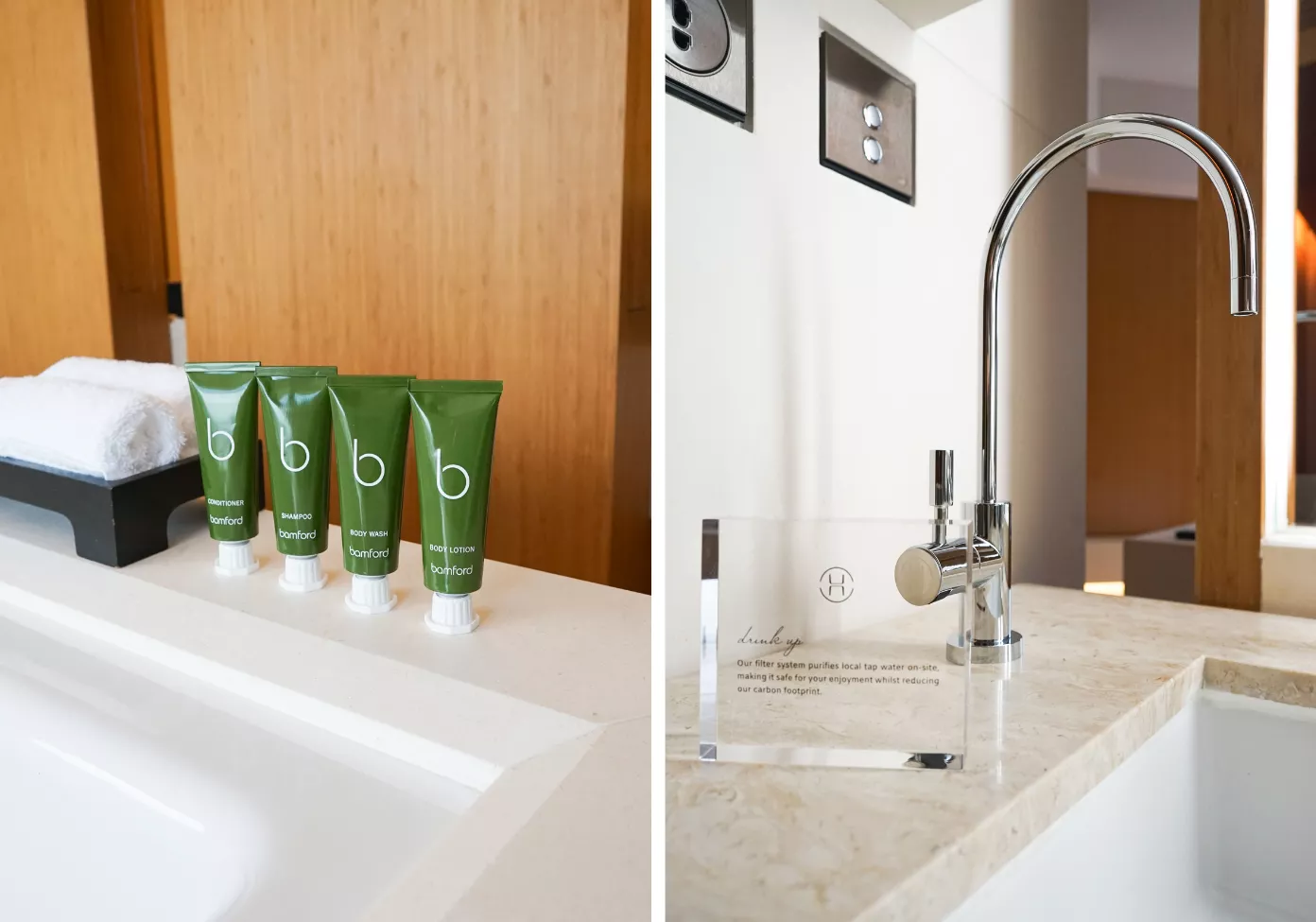
The hotel is also a Founding Collective Member of Belu Hong Kong, a UK-based social enterprise which provides carbon-neutral filtered-water systems. It installed Belu’s system in its Mediterranean restaurant, Salisterra, allowing diners to enjoy unlimited still or sparkling filtered water for a nominal fee. This not only reduces carbon emissions and glass waste, it also does social good, according to Kristina Snaith-Lense, General Manager, The Upper House and Pacific Place Apartments. This is because Belu donates 100% of its profits to global water charity, WaterAid, which helps bring clean water and sanitation to communities worldwide.
Adds Snaith-Lense: “Our collective goal is to be the leading sustainable development performer in our industry globally by 2030.”

 HK$
HK$ SG$
SG$ US$
US$








